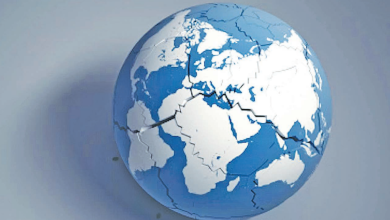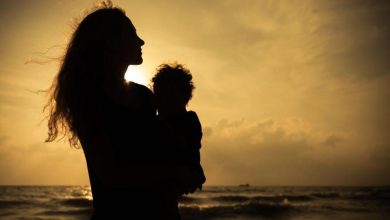Miriam’s washable pads innovation wins 2025 Courage Award

STOCKHOLM: IN a world where teenagers often get labelled for their social media posts or mysterious mood swings, one young Tanzanian girl is rewriting the narrative on courage, creativity and compassion.
Miriam Shangali, a bright science student at Dr Samia Secondary School in Dodoma, has just made waves far beyond her classroom and all the way to Stockholm, Sweden.
Why? Because this remarkable young woman has won the prestigious 2025 Young Courage Award, that is an international accolade celebrating young people who demonstrate extraordinary bravery and innovation. What makes Miriam’s achievement even more inspiring is that she is the only youth from Africa to be recognised this year by the Raoul Wallenberg Academy, in partnership with the Swedish Institute.
And no, this award was not handed out for being the best TikTok dancer or champion of the latest viral challenge. Miriam earned it by solving a very real, everyday problem that many girls face but often shy away from discussing openly: Menstrual hygiene.
When Miriam first started Form One, she faced a challenge that many girls around the world, especially in rural communities quietly suffer.
Menstruation, a natural part of growing up, suddenly became a hurdle. Imagine having to miss school days, dodge embarrassment or risk your health simply because you don’t have access to affordable, reliable sanitary products. For Miriam, this was not just an inconvenience; it was a barrier to her education and dignity. But rather than accept this as “just the way things are,” Miriam put on her scientific thinking cap and said, “There has to be a better way.” The result? An innovative invention: Washable, reusable sanitary pads made from affordable, locally available materials came into her mind.
These pads not only help girls manage their periods safely and comfortably but are also environmentally friendly and in turn reduce waste and costs. How Miriam’s pads are changing lives Miriam didn’t stop at inventing a product. She understood that the real challenge was access and awareness.
ALSO READ: Tanzanian women benefit from training on digital access, financial literacy
So, she took it upon herself to educate girls in her community about menstrual health and hygiene, breaking taboos and myths that have lingered for generations. She personally trained girls on how to use, wash and care for the pads, ensuring that her invention would make a sustainable impact.
One might wonder: How do you convince people to talk openly about a topic often hushed in schools and homes? Miriam’s answer: Honesty, empathy and a little bit of humour.
She would say things like, “Periods don’t take a holiday just because you are at school. Let us make sure you are prepared so you can keep rocking those exams without worrying about leaks or stains!” Her leadership created a ripple effect. More girls in Kikombo village, where Miriam’s project started, could attend school regularly, feeling confident and comfortable during their menstrual cycles.
The school absenteeism rates which often spike during “that time of the month” dropped significantly. The success of Miriam’s washable pads programme is not just a health story; it is a human rights story. By providing girls with the means to manage their periods, Miriam is tackling a silent contributor to gender inequality in education.
Girls who can’t afford sanitary products often miss crucial days of school, fall behind academically and sometimes even drop out entirely.
But with affordable, reusable pads, girls are reclaiming their time and future. They are able to participate fully in classes, sports and social activities and that is a win not just for the girls, but for their families and communities. Moreover, Miriam’s work sparks conversations that break down stigma around menstruation.
By normalising these discussions, she is helping to build a culture where young women’s health and well-being are prioritised, respected and supported. Recognition on the global stage On August 27, 2025, Miriam traveled to Stockholm to receive her award at an international ceremony hosted by the Raoul Wallenberg Academy and the Swedish Institute.
The Young Courage Award recognises young people aged 13 to 20 who show outstanding bravery, creativity and commitment to positive social change.
In her nomination letter, Ambassador Mobhare Matinyi of Tanzania to Sweden praised Miriam for her “creativity, effort, compassion and leadership among her fellow students,” highlighting how she was the only young African recognised this year.
The ambassador expressed wholehearted support for Miriam, underscoring that her work exemplifies the spirit of courage and innovation that the award seeks to honour.
Miriam’s story is a reminder that young people have the power to change the world and that is through one invention, one conversation and one community at a time. Her initiative is not just about sanitary pads; it is about breaking barriers and empowering girls to take control of their health, education and futures.
As she humbly explains, her motivation came from seeing firsthand the struggles of girls in Kikombo village and wanting to do something practical and lasting.
ALSO READ: Unique Fashion Show set for global Deaf Week
Through tireless work from making pads to training others and ensuring ongoing support, Miriam is creating a sustainable model that other communities can replicate. Her innovation also offers an environmental bonus. Disposable sanitary products contribute significantly to waste and pollution worldwide.
By promoting washable pads, Miriam champions a greener, cleaner planet. In a nutshell, menstruation is a universal experience for roughly half the world’s population, yet it remains one of the most in taboo subjects in many societies.
When girls are held back by their biology, not because of a lack of ability but because of social and economic barriers, we all lose out on potential talents, leaders and changemakers. Miriam’s achievement helps destigmatise menstruation by putting the issue front and centre.
It encourages communities to support girls with knowledge and resources, rather than silence and shame. And the impact goes beyond Tanzania. As more countries and communities adopt similar innovations and approaches, million of girls worldwide can hope for better health, education and equality.
After being inspired by Mariam’s action, what can you do?
Here’s how you can help the cause: Educate: Talk openly about menstrual health to break taboos; Support: Advocate for affordable sanitary products in your community; Innovate: Encourage young people to solve everyday problems creatively; Invest: Back initiatives that promote girls’ education and health; Celebrate: Recognise and share stories of young heroes like Miriam.
Miriam Shangali’s journey from a curious science student to an international award winner shows the power of youthful innovation backed by compassion. She proves that courage doesn’t always roar-sometimes, it’s a simple idea, a helping hand and the will to make life better for others. So, next time someone tells you “Periods are just a girl thing,” remember Miriam and her washable pads. Because when girls can manage their periods with dignity, they don’t just stay in school they change the world.





